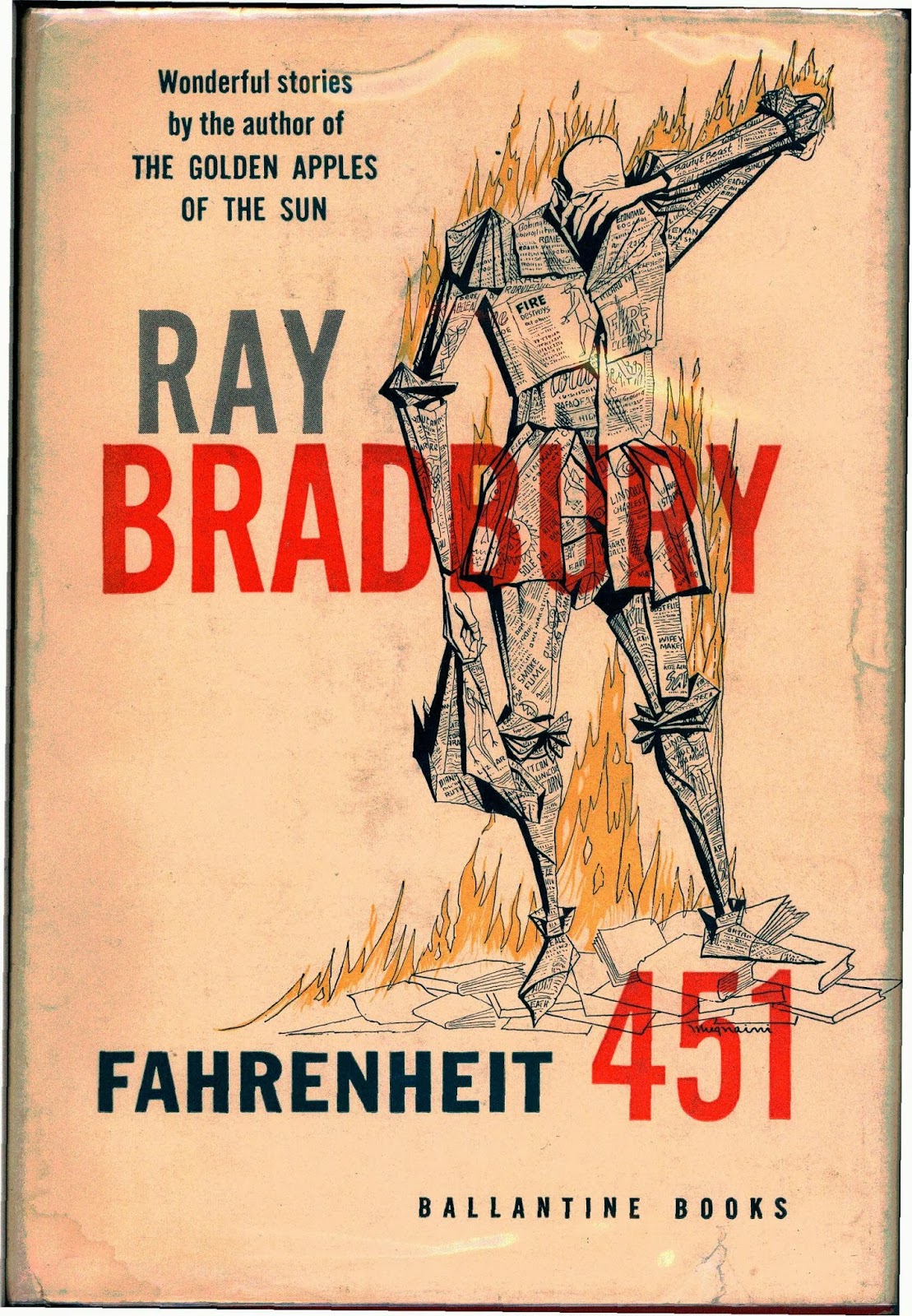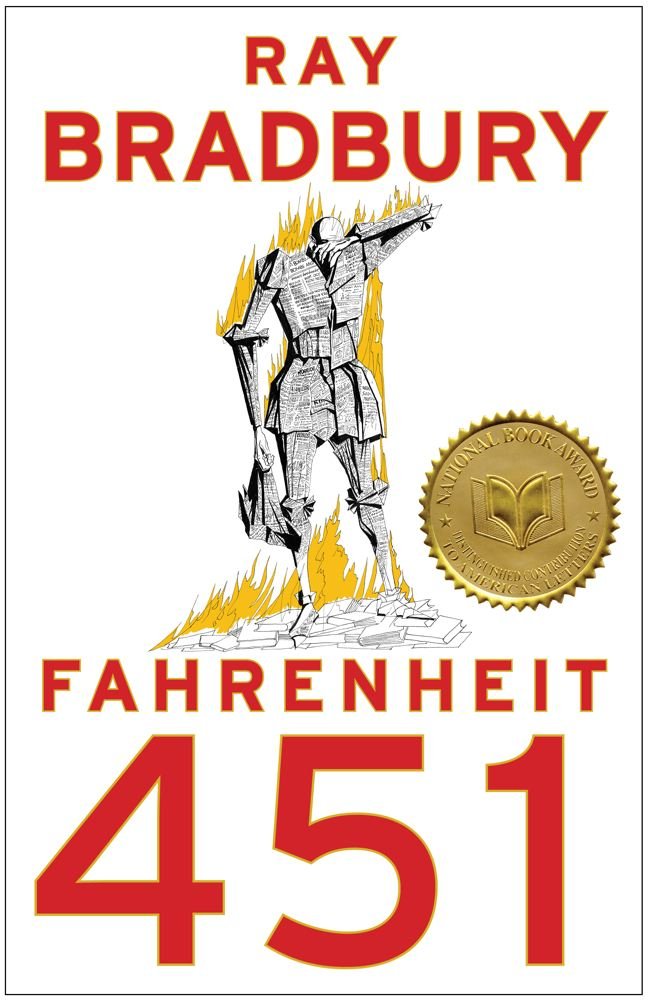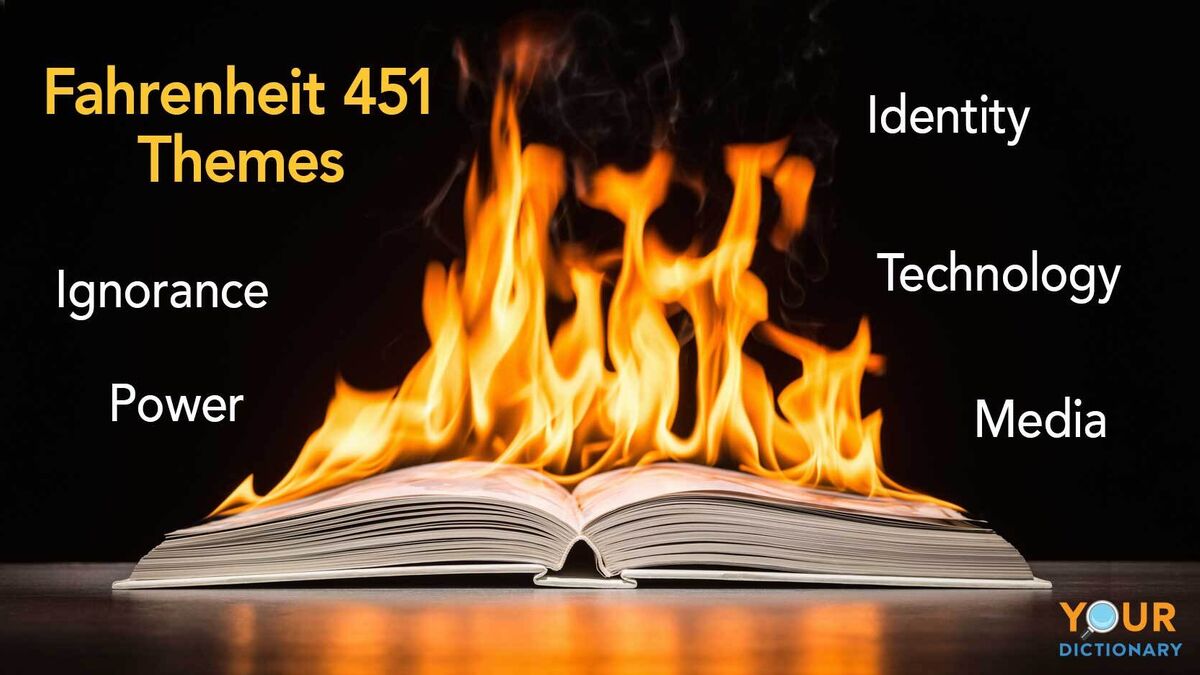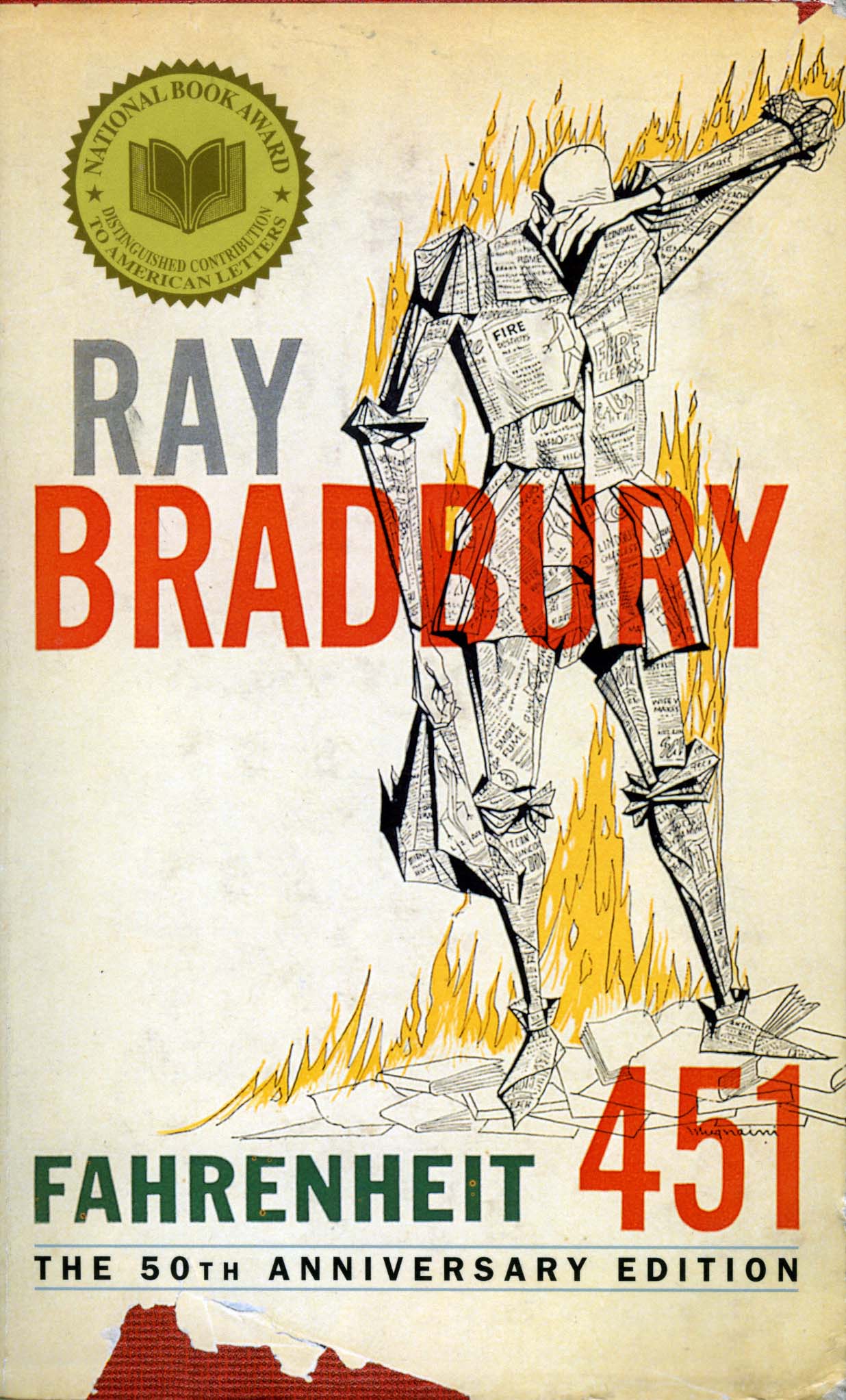
Why ‘Fahrenheit 451’ Is the Book for Our Social Media Age The New
In this article, we will delve into the key themes of censorship, knowledge vs. ignorance, technology's impact on society, and individualism vs. conformity. Censorship is a central theme in "Fahrenheit 451," as firemen are tasked with burning books to maintain control over information.

Fahrenheit 451 summary plot diagram Ray Bradbury book EXPOSITION
At the heart of "Fahrenheit 451" is the pervasive theme of censorship, depicted through the systematic destruction of books—a metaphor for the broader suppression of dissenting ideas. The novel paints a grim picture of how knowledge is manipulated to maintain societal control. This theme echoes historical and contemporary issues where.

The Nick Carter & Carter Brown Blog Fahrenheit 451 by Ray Bradbury
Major Themes in Fahrenheit 451 Knowledge and Individuality vs. Ignorance and Conformity. The overarching theme of Fahrenheit 451 explores the struggle between man's desire for knowledge and individuality in a society that expects ignorance and conformity.Supporting themes centered around censorship as a means to control society and the destructive nature of technology are used to amplify the.

The Narrative (March 16, 2021) Governance Project
In Fahrenheit 451, the theme of dissatisfaction has close connections to the themes of technology and censorship. The dystopian society Bradbury represents in the novel arose in its present form because of technological innovation. Technological innovation led to the ascendency of television, which in turn led to the devaluing and, eventually.

Fahrenheit 451 What Would Happen if Books Did Not Exist?
In a time when debates about freedom of speech and the influence of technology on society are paramount, "Fahrenheit 451" serves as a mirror to contemporary anxieties and challenges.

The Fahrenheit 451 Dystopian Premise Refresher You Need
Beatty says that without books, one person can't be more or less intelligent than another person. He claims this way of living provides people "peace of mind.". While many people in the novel are not interested in books, we come to see that the practice of avoiding books does not keep society peaceful. Colored people don't like Little.

What Fahrenheit 451 Tells Us About Freedom, Censorship, and Technology
Get free homework help on Ray Bradbury's Fahrenheit 451: book summary, chapter summary and analysis, quotes, essays, and character analysis courtesy of CliffsNotes. In Ray Bradbury's Fahrenheit 451, you journey to the 24th century to an overpopulated world in which the media controls the masses, censorship prevails over intellect, and books are considered evil because they make people question.

Fahrenheit 451 A Short Film by Phillip Wachowiak —Kickstarter
Fahrenheit 451 is a dystopian novel, written by an American author, Ray Bradbury. It was published in the United States in 1953 and instantly became a textbook across the globe. Interestingly this novel declared to be a textbook presents the American future society where books have been banned and firemen have been deputed to ensure their burning.

‘Fahrenheit 451’ from Book to Screen Fahrenheit 451, Book burning
Certain themes are explored in 'Fahrenheit 451', and a few of the most prominent ones, the themes explored in greater detail below, are knowledge and censorship, the abuse of technology, and social alienation. Knowledge and Censorship. In a book about book burning, a central theme is the conflict between freedom of thought and censorship.

What "Fahrenheit 451" Got Right, and What "Fahrenheit 451" Got Wrong
Ray Bradbury. Fahrenheit 451, dystopian novel, first published in 1953, that is regarded as perhaps the greatest work by American author Ray Bradbury and has been praised for its stance against censorship and its defense of literature as necessary both to the humanity of individuals and to civilization. The story takes place in an unspecified.

Fahrenheit 451 by Ray Bradbury
Ray Bradbury's dystopian novel Fahrenheit 451 was published in 1953. In the novel, the protagonist Guy Montag works as a firefighter. In the novel, the role of a fireman is to seize and burn books.

Banned Books Week Highlight Fahrenheit 451 Shykia Bell
Montag's description allows us to understand the sort of entertainment people consume in this world due to the all-pervasive technology: It is frivolous, absurd, violent, and frenetic. During this scene, Montag begins to feel disgust for the people that unthinkingly use this continuous diversion. Quotes related to Technology within Fahrenheit.

😱 Fahrenheit 451 book vs movie. BOOK VERSUS FILM Fahrenheit 451. 2022
Fahrenheit 451 Quotes about Control, Censorship and Freedom. #20: "We must all be alike. Not everyone born free and equal, as the constitution says, but everyone made equal". #21: "It's perpetual motion; the thing man wanted to invent but never did. . . . It's a mystery. . . clean, quick, sure; nothing to rot later.

Copy of Fahrenheit 451 Summary Fahrenheit 451 is a novel that tells
If technology is more an enabler rather than an actual cause of the decline of thought in Fahrenheit 451, Captain Beatty's discussion of "minority pressure" as a cause - the term minority indicating any type of group rather than only racial or ethnic ones - is more convincing, and rightly so. Whereas Bradbury in stories of just a few years prior to Fahrenheit 451 depicted censorship.

Book Review Fahrenheit 451
Lesson 1: The Dangers of Censorship. In Fahrenheit 451, books are banned because they are believed to cause dissent and unhappiness among citizens. However, as the novel shows, censorship has dangerous consequences. It limits individual thought and creativity, and prevents people from learning about history, science, and other important topics.

Fahrenheit 451 KinoAZ
Ray Bradbury's ' Fahrenheit 451 ' is set in a future world after atomic wars where books are banned, and people who own books have their houses burned down. It explores themes of censorship and control of knowledge, the dark side of technology, and social alienation. The book is Bradbury's most popular work and was first published in 1953.